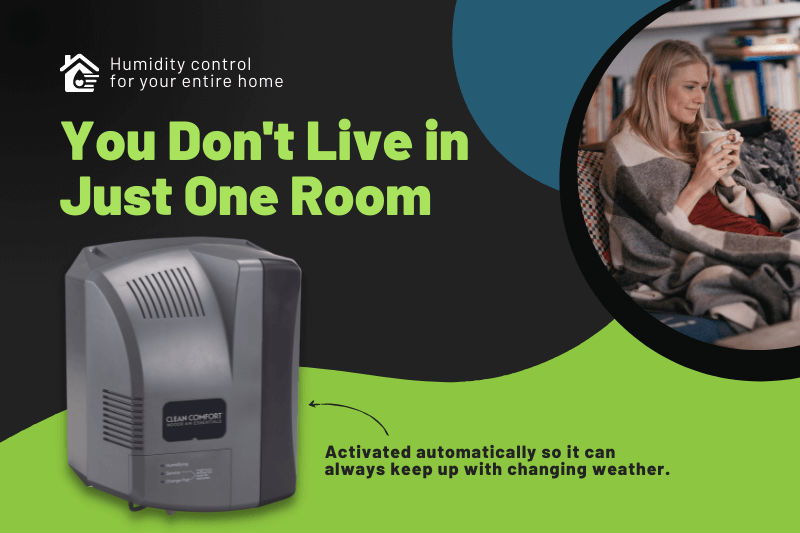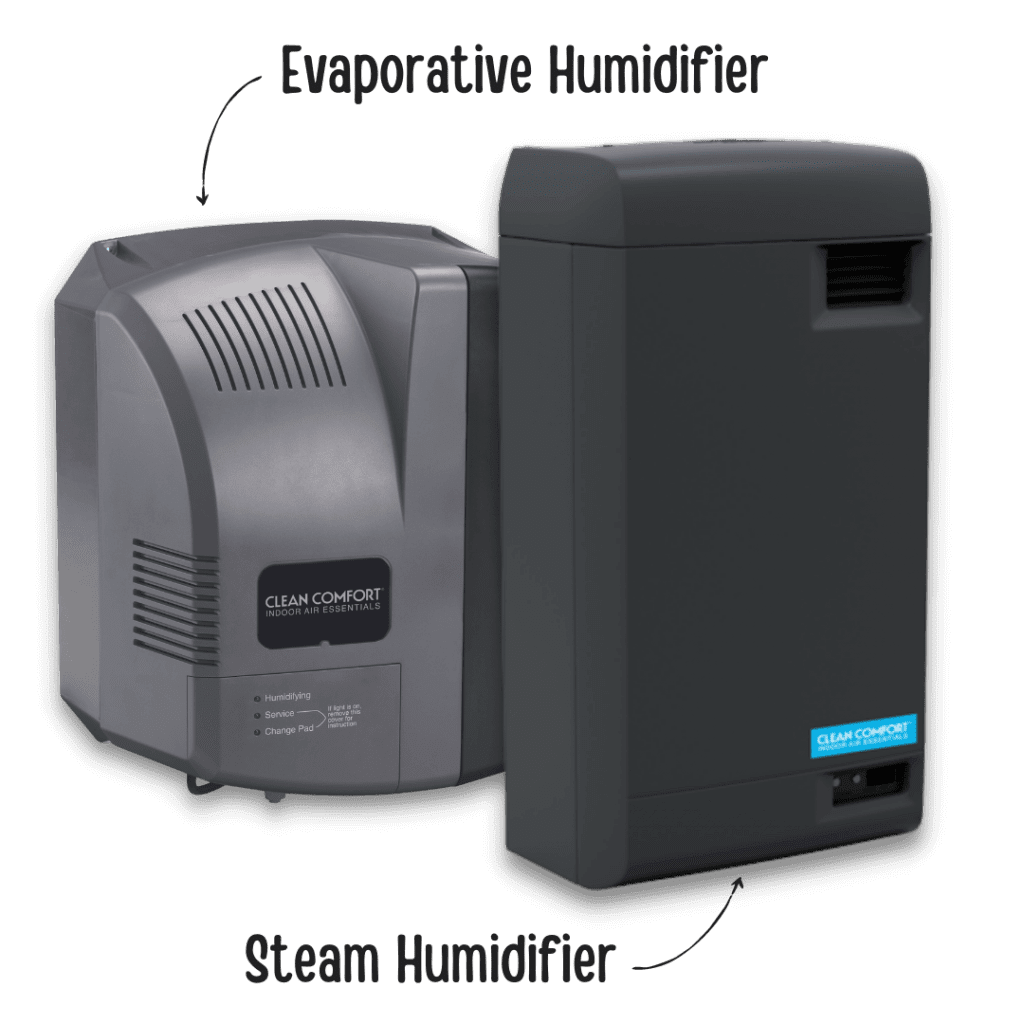Two Main Technologies To Choose From
Evaporative Humidifiers
Among the most popular and quickest to set up. This device works by a mechanism that blows warm air over a wet pad. The water on the pad evaporates and its vapor is absorbed into the surrounding air.
Steam Humidifiers
Approaches the problem in a slightly different way. This device heats up the water in an internal reservoir, convert it into breathable vapor and expel that vapor into the surrounding area to increase the moisture level.
How To Choose the Best Whole-Home Humidifier
Choosing a whole-home humidifier can be a difficult decision. It’s important to find the best solution for your home, but it’s not always clear what that is. The answer is different for every person and every situation based on geography or climate, house, existing HVAC system and pre-existing health conditions. Let’s discuss some of the factors to consider when choosing a whole-home humidifier so you can make an informed decision about which one works best for your home.
Start by asking yourself a few questions: Do you have pre-existing health conditions? You might want to check with your doctor or allergist before buying any type of humidifier. Are you in an especially dry climate like the Southwest, where humidity levels regularly drop below 20% during some seasons? Or maybe it’s excessively wet and damp where mold is already growing throughout the house.
What kind of HVAC system do you currently have installed in your home? How old is your home? Central AC systems are more efficient than forced-air heating systems at controlling humidity while still keeping comfortable temperatures indoors. If there isn’t enough airflow coming from vents placed around the house, adding too much moisture can make things worse instead of better.
Doing your own research is great and we’re always here to help as much as we can, but before you make any final decisions or invest in whole-home humidity control, please talk to your local IAQ expert. They’ll be able to do a complete evaluation and design a personalized solution that fits your needs.

 Why Is the 40-60% Range Ideal? Your home’s dryness or humidity is an issue if it falls outside the ideal range. These tips can help you solve the problem and understand why this range is so important.
Why Is the 40-60% Range Ideal? Your home’s dryness or humidity is an issue if it falls outside the ideal range. These tips can help you solve the problem and understand why this range is so important. 